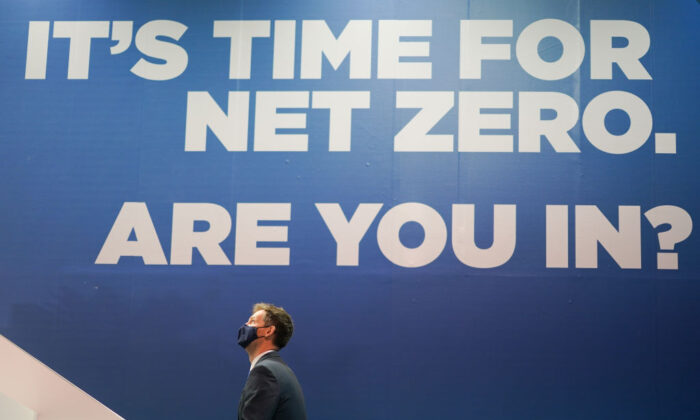
Two prominent climate scientists have taken on the Environmental Protection Agency’s (EPA) new rules to cut CO2 emissions in electricity generation, arguing in testimony that the regulations “will be disastrous for the country, for no scientifically justifiable reason.”
Citing extensive data (pdf) to support their case, William Happer, professor emeritus in physics at Princeton University, and Richard Lindzen, professor emeritus of atmospheric science at Massachusetts Institute of Technology (MIT), argued that the claims used by the EPA to justify the new regulations are not based on scientific facts but rather political opinions and speculative models that have consistently proven to be wrong.
Who is in charge of your children? That has been a perennial question that has grown in importance over the last few years. When I was a child, it was understood that, with rare exceptions, parents were in charge of a child’s upbringing. This included medical, religious, and educational decisions. However, over the last few decades, the role of the parent in these decisions has been replaced by experts. What happens when the goal of the experts differs from those of the parents? Who decides the future of the rising generations? It was understood that the state acted in loco parentis, in place of the parents, only for the safety of the child. A recent case in U.S. District Court shows that be it health departments, child services, schools, or even the courts. Government not only believes they know better than the parents, they are more than willing to act in loco parentis tyrannis.
https://constitutionstudy.com/?p=8897
With the release of ChatGPT and other artificial intelligence (AI) applications, there has been a lot of speculation and downright assertions about our future. With over 30 years of experience in Information Technology (IT), not more than a passing understanding of AIs, I've come to the conclusion that much of what I've heard is more science fiction than fact. A recent court case decided in the D.C. District Court revolved around one very important question. Do AIs have rights?
In this third installment of the three-part series on the branches of government, we look at the role of the third and weakest branch. At least that is what our Founding Fathers thought of it. What is the role of the federal judiciary? What are the extent of their powers, how do they related to the other two branches of government, and why is a proper understanding of the role of the judiciary critical if the United States is to remain a constitutional republic?
https://constitutionstudy.com/?p=8575
There’s a parable in the Gospels that reminds us that if we are not humble, we’re likely to be taken down a notch or two. Not only do I think that’s a good lesson in general, I think it’s especially important in today’s climate. - Live 4PM ET with Host Paul Engel @CyberEngel @OutLoudNews
LIVE http://rdo.to/TALKLOUD
iHEART RADIO http://bit.ly/2mBrCxE

As a union of 50 states, what happens in our cities and states is as important, if not more important, than what’s going on in D.C. I doubt most people would realize that, based on some of the news coverage. - Live 4PM ET with Host Paul Engel @CyberEngel @OutLoudNews
LIVE http://rdo.to/TALKLOUD
iHEART RADIO http://bit.ly/2mBrCxE

The Hawaiian legislature passed Act 191 in an attempt to prohibit “materially deceptive media” that would harm the “reputation or electoral prospects of a candidate in an election”. This seems like an infringement on free speech. The District Court for the District of Hawaii agreed.















